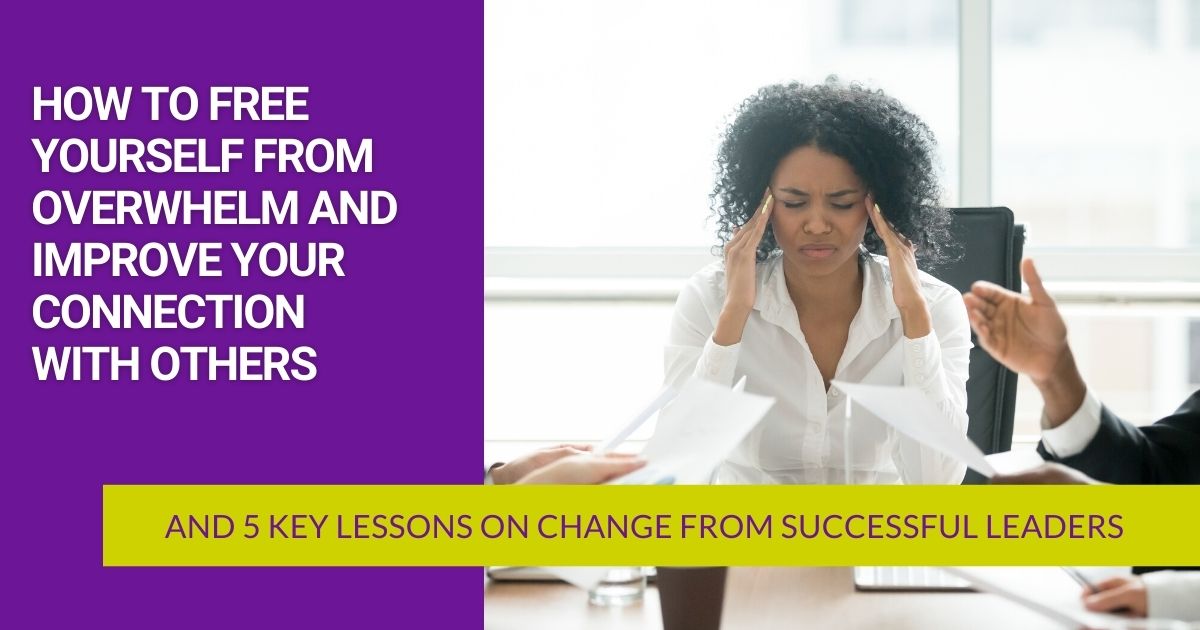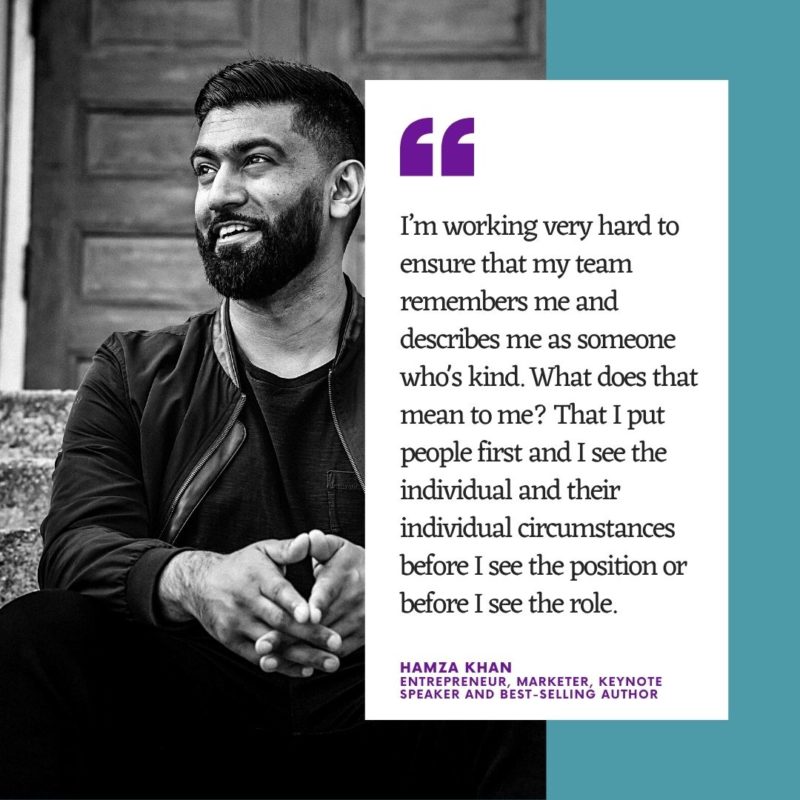It’s May!
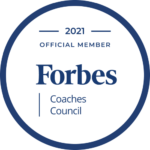 I’m feeling like we are slowly coming out of this pandemic. Slowly, but surely. This newsletter has many parts I hope you find useful.
I’m feeling like we are slowly coming out of this pandemic. Slowly, but surely. This newsletter has many parts I hope you find useful.
Last month, I was invited to join the Forbes Coaches Council – seriously! Talk about being a little flabbergasted. Little me. Stay tuned for an article coming out in Forbes on Working Through Imposter Syndrome that I wrote. It sure came up for me when I got that call!
In the meantime – here is a great read: Achieving Peak Productivity: 15 Ways To Get Into The ‘Zone’ At Work.
How to Lead and Work through the Pandemic
5 Leaders… 5 Questions
Last month, we talked to two-time Olympian Sandra Levy, the Chief People Officer at the Canadian Olympic Committee.
This month, I bring you Hamza Khan, who recently released the BEST selling book (Amazon sold out – how’s that for best selling!) Leadership Reinvented. I thought Hamza would be the perfect person to set up our spring! He speaks, writes, and runs a digital marketing agency and works with students at Ryerson.
Here’s the formal stuff: Hamza Khan is a multi-award-winning marketer, two-time best-selling author, and global keynote speaker whose TEDx talk “Stop Managing, Start Leading” has been viewed over a million times. In addition, he is a top-ranked university educator, serial entrepreneur, and respected thought leader whose insights have been featured by notable media outlets such as VICE, Business Insider, and The Globe and Mail.

Hamza Khan
Multi-award-winning marketer, accomplished entrepreneur, and dynamic keynote speaker.
(Connect on LinkedIn)
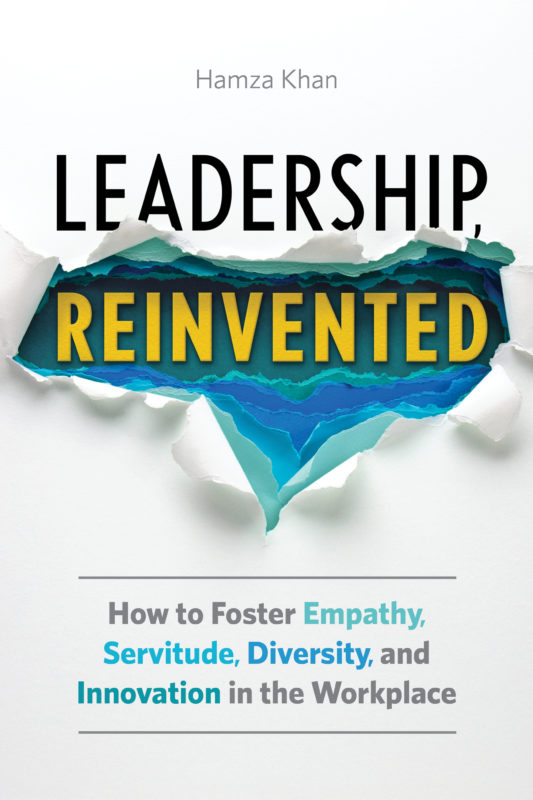
1. What is a daily ritual you have done to stay focused throughout the pandemic
My pandemic days have been quite chaotic, to say the least. And so I make sure that my mornings are very slow. Intentionally sluggish. Jeff Bezos describes it as having putter time to just float around and do nothing and have a coffee and read an article and sit and meditate. So for me, it’s all about being alone, present, and allowing myself to boot up if you will, and experience some semblance of normal and quiet and calm before the day gets chaotic.
2. What advice would you give yourself if you had to go through this all again?
I would check in with people more often than I think I should. I did my level best given how full my plate of priorities was. And in a way, my job allows me as a public speaker, just like you, Gregg, to check in on tens of thousands of people in the audience, but I don’t think I was as present for my closest friends and family.
3. What surprised you most about your ability to lead your business and lead your team through the ambiguity and uncertainty that the pandemic brought on? You might need to take yourself back to March 10th last year!
This is in the opening chapter of my book. I experienced a very powerful amygdala hijack in the first few days of the pandemic. My father befell a very severe health scare, and that was an out-of-body experience for me, just completely overrode the prefrontal cortex. If we’re going into brain psychology, the experience flushed all the blood out of the prefrontal cortex. I was unable to have any rational thought in that moment. And what was surprising is I realized how calm and collected, and prepared I was for adversity. I almost felt guilty in terms of how well prepared I was for that moment. That reinforced for me a philosophy about not rushing but not waiting either.
4a. What new leadership skill, practice, or quality, so something new, have you developed that you would use next time a big challenge comes your way?
Consistent and intentional positive self-talk. I’ve gotten into the habit of daily journaling, daily gratitude exercises. It’s not enough. I realized there’s more deeper work that needs to be done specifically around my vocabulary. So I’ve become aware recently that I have a lot of violent and chaotic terminology that I use on a daily basis, like hit the target or we killed it or crushing it. I’m trying to purge the violence from my vocabulary. So as to rewire my brain to see growth, connection relationships, and nurturing as an alternative, as opposed to war and combat analogies.
Gregg: That’s a really great insight because the language that we use when we’re engaging with others can fire them up or bring them down. Especially when you’re dealing with people like speaking internationally, where you have people who’ve survived civil wars.
Totally. And not to mention, just speaking to diverse audiences, you know, women, people of color, the LGBTQ community. I mean that, that language of crushing it, killing two birds with one stone. And it’s very male-centric. And again, very much about combat and war. I think it’s unnecessary.
4b. What one word would you hope your team would use to describe your leadership style, and what does that mean to you?
I’m working very hard to ensure that my team remembers me and describes me as someone who’s kind. What does that mean to me? That I put people first, and I see the individual and their individual circumstances before I see the position before I see the role. And before I see the task at hand,
Gregg: Oh, I love that.
I think I do that almost to a fault, sometimes to the detriment of the overall mission. But that has been my philosophy from as early as I can remember, people over everything. I’m trying hard to become a more human-centric leader, whatever that means.
Gregg: I’ve shared this great story about an investment banker who owned a firm in the World Trade Center that got targeted with the planes back on 9/11. He lost 2 partners and 40% of their staff in the attack. The investment banker said that he found that when he took care of the emotional aspects such as attended funerals, made sure salary continuance, benefits, all that stuff. The business took care of itself.
5. What’s a book that you’ve read in your life that you think is a must-read for people who are in a leadership role?
If you gave me an unlimited budget and said, “Come and make a movie on any story,” this would be the one, Billion Dollar Loser. It’s the story of Adam Neumann and WeWork. It is a field manual for what not to do as a leader. It is a series of warnings against autocratic, aggressive, and authoritarians types of leadership.
It was such a pleasure talking with you! Congratulations again on your book – Leadership Reinvented.

Here’s a fun pic from a photoshoot I did in April. They aren’t as fun as people think – it was over 4 hours, and finally, I lost it.
This meant a website update! And prompted me to think – what do I want us all to do? Do good work. Have fun. Make the world a better place.
More here: https://www.greggbrown.ca/
If you want more on speaking and my approach to working with you, go here: https://www.greggbrown.ca/

Nurses Week is coming up in May! Nurses are very close to my heart as I worked in nursing education for many years– though I’m not a nurse.
Lois Brummet, one of my mentors for the last 27 years, is also a nurse. After all these years, she still provides guidance and mentoring to me personally and in my work. I’m not involved in this event – but I know the people that are – and they are GREAT! Check out the event here or: https://greatnessmagnified.ac-
There are also some sponsored options here: Nursing the Future – Free ticket for Nurses: https://
